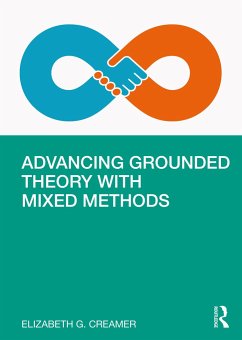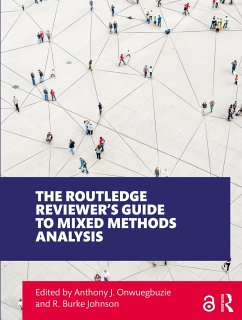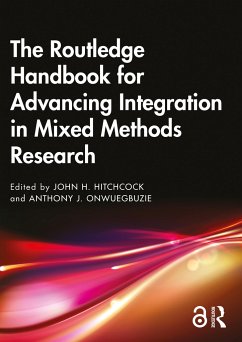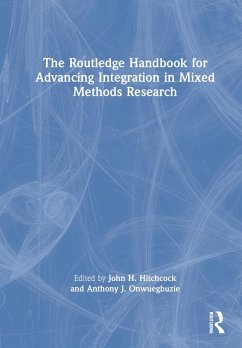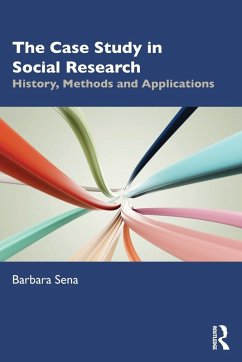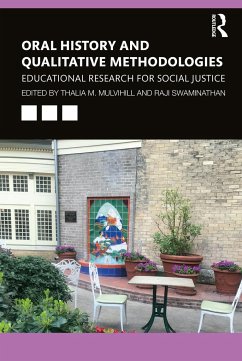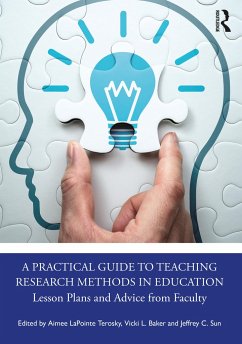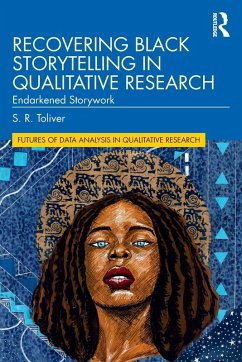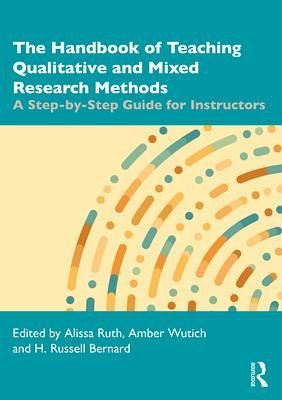
The Handbook of Teaching Qualitative and Mixed Research Methods
A Step-by-Step Guide for Instructors
Herausgegeben: Ruth, Alissa; Wutich, Amber; Bernard, H. Russell
Versandkostenfrei!
Versandfertig in 6-10 Tagen
46,99 €
inkl. MwSt.
Weitere Ausgaben:

PAYBACK Punkte
23 °P sammeln!
The Handbook of Teaching Qualitative and Mixed Research Methods: A Step-by-Step Guide for Instructors presents diverse pedagogical approaches to teaching 71 qualitative and mixed methods.These tried-and-true methods are widely applicable to those teaching and those being trained in qualitative and mixed-methods research. The methods for data collection cover ethics, sampling, interviewing, recording observations of behavior, Indigenous and decolonizing methods and methodologies as well as visual and participatory methods. Methods for analyzing data include coding and finding themes, explorator...
The Handbook of Teaching Qualitative and Mixed Research Methods: A Step-by-Step Guide for Instructors presents diverse pedagogical approaches to teaching 71 qualitative and mixed methods.
These tried-and-true methods are widely applicable to those teaching and those being trained in qualitative and mixed-methods research. The methods for data collection cover ethics, sampling, interviewing, recording observations of behavior, Indigenous and decolonizing methods and methodologies as well as visual and participatory methods. Methods for analyzing data include coding and finding themes, exploratory and inductive analysis, linguistic analysis, mixed-methods analysis, and comparative analysis. Each method has its own 1,500-word lesson (i.e., chapter) written by expert methodologists from around the globe. In these lessons, contributors give the reader a brief history of the method and describe how they teach it by including their best practices-with succinct, step-by-step instructions-focusing on student-centered experiential and active learning exercises.
This comprehensive, one-of a-kind text is an essential reference for instructors who teach qualitative and/or mixed methods across the Social and Behavioral Sciences and other related disciplines, including Anthropology, Sociology, Education, and Health/Nursing research.
These tried-and-true methods are widely applicable to those teaching and those being trained in qualitative and mixed-methods research. The methods for data collection cover ethics, sampling, interviewing, recording observations of behavior, Indigenous and decolonizing methods and methodologies as well as visual and participatory methods. Methods for analyzing data include coding and finding themes, exploratory and inductive analysis, linguistic analysis, mixed-methods analysis, and comparative analysis. Each method has its own 1,500-word lesson (i.e., chapter) written by expert methodologists from around the globe. In these lessons, contributors give the reader a brief history of the method and describe how they teach it by including their best practices-with succinct, step-by-step instructions-focusing on student-centered experiential and active learning exercises.
This comprehensive, one-of a-kind text is an essential reference for instructors who teach qualitative and/or mixed methods across the Social and Behavioral Sciences and other related disciplines, including Anthropology, Sociology, Education, and Health/Nursing research.






